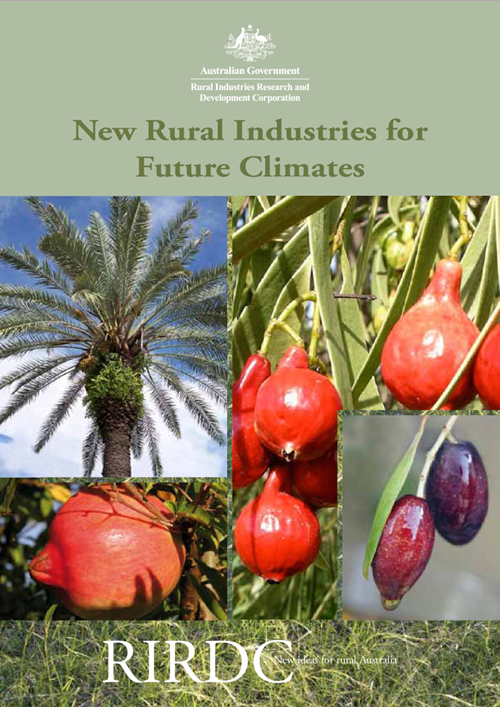This project explored the potential for new industries and enterprises to fill land-use opportunities in areas where current agricultural industries may be strongly challenged by future climates. The specific aims were to identify the regions and industries where climate change will alter the current mix of agricultural industries, determine the plant traits required for successful new industries in future climates, and suggest new industries that meet these criteria.
Climate change has the potential to substantially alter the mix of agricultural industries across many regions of Australia because of increasing temperatures and changing rainfall patterns. These climatic changes will threaten the viability of some existing agricultural industries and create opportunities for new industries that are better adapted to future climates. The importance of this report is that it brings together climate projections with an assessment of the vulnerability of existing agricultural industries, and suggests possible production opportunities. A number of opportunities for new industries are described, the plant traits necessary for productive crops in these conditions are discussed, and new industries options that fit these requirements are suggested.
Six broad agricultural regions were identified that encompassed a range of climates and agricultural production systems across Australia: northern Australia, north eastern Australia, Murray-Darling basin, marginal cropping fringe of southern Australia, southern Australia high rainfall and western Australia high rainfall. A review of the literature on the impacts and adaptation options for mainstream agricultural industries was conducted, and this information was combined with recent climate and future climate projections to determine the vulnerability of agricultural industries in each of the regions. For industries and regions identified as under particular threat from climate change, a suite of plant traits necessary for adaptation to new production opportunities was identified. Industry options suited to these regions were identified through a project workshop, searching the national and international literature, and using a plant modelling approach.





